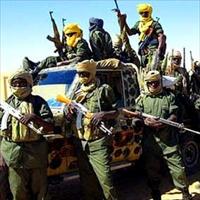NIGER: Rebels accused of launching Iraq-inspired “urban terror” campaign

A rebel movement that has already cut northern Niger off from humanitarian aid by laying mines throughout the region has denied responsibility for landmine explosions in Maradi and Tahoua in the south.
Two civilians were killed in the nearly simultaneous anti-tank mine explosions which occurred between 9pm and 11pm on 10 December.
According to sources in Maradi where an anti-tank mine exploded under a civilian truck, one person died and two others were wounded. Maradi is 400 km south of the northern capital Agadez which up until December marked the southernmost limit of violence in Niger.
In Tahoua, 350 km south-east of Agadez, sources said one person was killed and one wounded when another anti-tank mine went off under a civilian vehicle.
Both towns serve as hubs for aid agencies which are mainly running nutrition projects in Niger. The attacks were also reported on Nigerien state radio on 11 December.
Urban terror plot
Sources said residents in Maradi and Tahoua are blaming the Nigerien Movement for Justice (MNJ) which has been fighting government forces in northern Niger since February.
According to the Reuters news agency, Niger’s government warned last month that the MNJ rebel group was plotting a campaign of “urban terror” in Niger as part of its fight to secure political and economic autonomy for the north of the country.
Moktar Roman, MNJ spokesperson based in Belgium, denied the group is targeting civilians and said it was not behind the blasts.
"There is no element of the MNJ that would target civilians," he said, blaming the army instead. "The army did this to turn public opinion in their favour."
So far no group has claimed responsibility for the explosions.
New territory
Until this month when two mine explosions were reported on roads running south of Agadez, violence in Niger had been restricted to the sparsely populated north of the country, where the Nigerien army has been deployed in strength.
Northern Niger is also made insecure by armed bandits and drug smugglers, which the government has accused of being behind all of the violence as it rejects that there is a rebellion taking place on its territory.
However according to several human rights groups in Niger, it is the MNJ that is behind the mine-laying there, with civilians being paid to lay the mines and a premium being offered if it hits an army vehicle. The method means the MNJ in practice has little oversight over where its mines are placed, the rights groups say.
Military approach in question
Jason Mosely, Africa editor at the British global strategic consultancy Oxford Analytica, said the explosions are a sign that the Niger government’s pursuit of a military approach to end the violence in the country is not working.
“I doubt this really represents a widening of the conflict,” he said. “I don’t think we’re returning to a 1990s level of violence just yet,” he added, referring to five years of instability in northern Niger between 1990 and 1995 that scattered hundreds of thousands of Nigerien refugees around the region.
“But it does show Niger’s approach is not paying dividends as they pursue a robust military and rhetorical response instead of pursuing engagement as has worked for the government in Mali.”
Iraq tactics
The bombings in Tahoua and Maradi might signal the anti-government elements in Niger are drawing their tactics from the Iraq insurgency, Mosely said.
“In the aftermath of the Iraq insurgency the use of these kinds of high-profile, high-impact attacks that are indiscriminate and end up killing civilians does seem to be spreading in countries where you would not previously have expected it.”
“Niger’s rebels are not necessarily the strongest force there is, but these kinds of attacks have a significant impact because they’re so targeted and atrocious.”
According to Reuters, on 21 November Nigerien police foiled an attempt to detonate an anti-tank mine in a fuel depot in the town of Dosso, 140km east of the capital Niamey.
Agencies present
Most major UN offices and NGOs working in Niger have a presence in Maradi, a busy trading town at the heart of a region of 2.2 million people and close to the border with Nigeria.
Tahoua is the capital of a region of 2 million people where the UN World Food Programme and NGOs including Concern, Action Against Hunger, Médecins Sans Frontières, Medecins du Monde, and World Vision work.
Humanitarian sources in both towns said business had returned to normal on 11 December, traffic was circulating as usual, and aid agencies on the ground were still conducting missions in both regions.
 Back and Next - Back and Next
Back and Next - Back and Next See Also - See Also
See Also - See Also